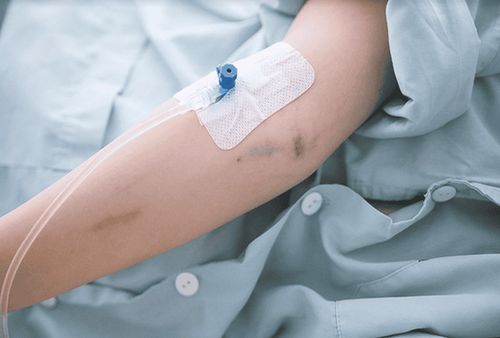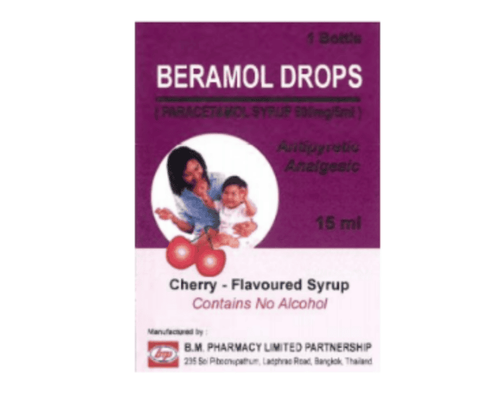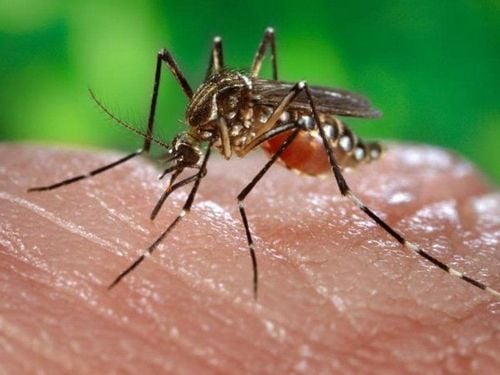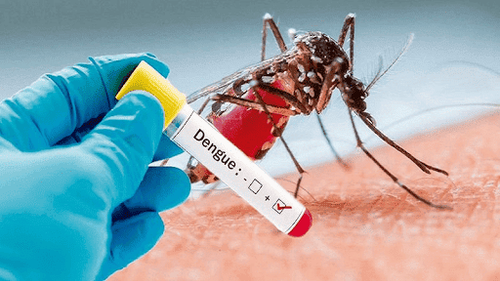This is an automatically translated article.
The article is professionally consulted by Master, Doctor Nguyen Thi My - Department of Medical Examination & Internal Medicine - Vinmec Danang International General HospitalDengue symptoms can become severe within hours, with severe dengue being a medical condition requiring emergency intervention and hospital monitoring because of the risk of death. death.
1. Overview of Severe Dengue fever
Severe dengue is a serious medical condition that can lead to dengue shock, internal bleeding, and even death. Infection with different serotypes of the virus increases the risk of developing severe dengue.1 in 4 people infected with the dengue virus will develop symptoms similar to other common viral infections. About 1 in 20 people with dengue fever will have warning signs. Cases that progress to severe dengue complications are life-threatening within a few hours, so prompt hospitalization is required.
Patients are more likely to have severe dengue depending on the type of virus that the patient has (Dengue hemorrhagic fever is more severe than in other types). In particular, dengue fever in infants, pregnant women, and the elderly with comorbidities are often a group of subjects at high risk of developing severe dengue.
2. Severe dengue epidemic in the world
Severe dengue was first recognized in the 1950s during dengue epidemics in the Philippines and Thailand. Today, severe dengue affects most of Asia and Latin America, becoming the leading cause of children and adults in these regions experiencing severe symptoms requiring hospitalization and even hospitalization. even death.Currently almost all regions of the world are experiencing severe dengue epidemics , with Southeast Asia and some other regions believed to be the most severely affected. Based on official data reported by Member States, there were more than 3.34 million cases of severe dengue in 2016 and this number continues to rise. In the Americas alone, severe dengue resulted in 1,181 deaths in 2015.
After a decrease in the number of dengue cases during the Zika outbreak (2017-2018), The number of cases increased sharply in 2019 in the Western Pacific region, including Vietnam. An estimated 500,000 people with severe dengue are hospitalized each year with a mortality rate of 2.5%.

3. Warning signs of severe dengue fever
Dengue fever is a serious illness that affects infants, children and adults, but is rarely fatal. Suspicious signs of dengue are usually a high fever (40°C) accompanied by 2 of the following: severe headache, pain behind the eyes, muscle and joint pain, nausea, vomiting, swollen glands or rash. These symptoms usually last 2-7 days, preceded by an incubation period of 4-10 days after being attacked by mosquitoes.Warning signs of severe dengue usually begin to appear 3-7 days after the onset of the illness. If you or your family members have a fever with any of the following symptoms, you should immediately go to the nearest medical facility for immediate emergency and timely monitoring:
Severe abdominal pain or muscle pain; Vomiting continuously (at least 3 times within 1 hour). Nosebleeds or bleeding gums; Vomiting blood, or blood in the stool; Rapid breathing, difficulty breathing. Feeling very tired, struggling, lethargic, lethargic.
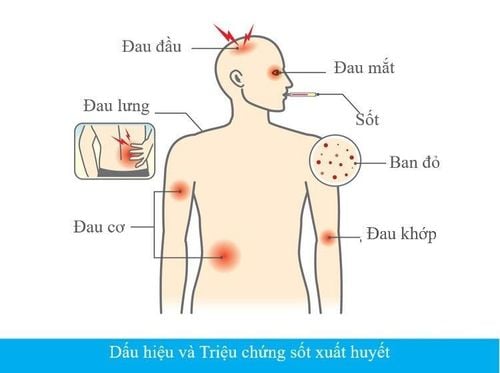
4. Treatment of severe dengue fever
Although there is no specific treatment for dengue or severe dengue to date, early detection and access to proper medical care will reduce mortality to a very low level, only less than 1%.Dengue fever is a potentially fatal complication caused by:
Plasma leakage due to increased vascular permeability (causing hypotension). Multi-membrane effusion: peritoneum, pleura, heart,...; Acute respiratory failure due to pleural fluid, interstitial tissue. Severe bleeding : nosebleeds that do not stop, vaginal bleeding, bleeding in muscles and soft tissues; Gastrointestinal and visceral (lungs, brain, liver, spleen, kidney) bleeding. Multi-organ failure: heart, liver, kidney, mental disorder due to brain hemorrhage,... For severe dengue fever, the medical care of experienced doctors and nurses will greatly affect disease progression, can save lives and reduce mortality from more than 20% to less than 1%. Maintaining an adequate and reasonable volume of fluid in the patient's body is very important when caring for someone with severe dengue.
Severe dengue is a condition that requires immediate emergency and medical attention or hospitalization. There is no specific treatment for dengue in general and complicated dengue in particular; Mainly supportive and symptomatic treatment. The next 24-48 hours of the dengue shock phase is critical, which can be life-threatening or even fatal. Therefore, proper medical care is essential to avoid complications and reduce the risk of death.
Please dial HOTLINE for more information or register for an appointment HERE. Download MyVinmec app to make appointments faster and to manage your bookings easily.
References: Cdc.gov and Who.int




